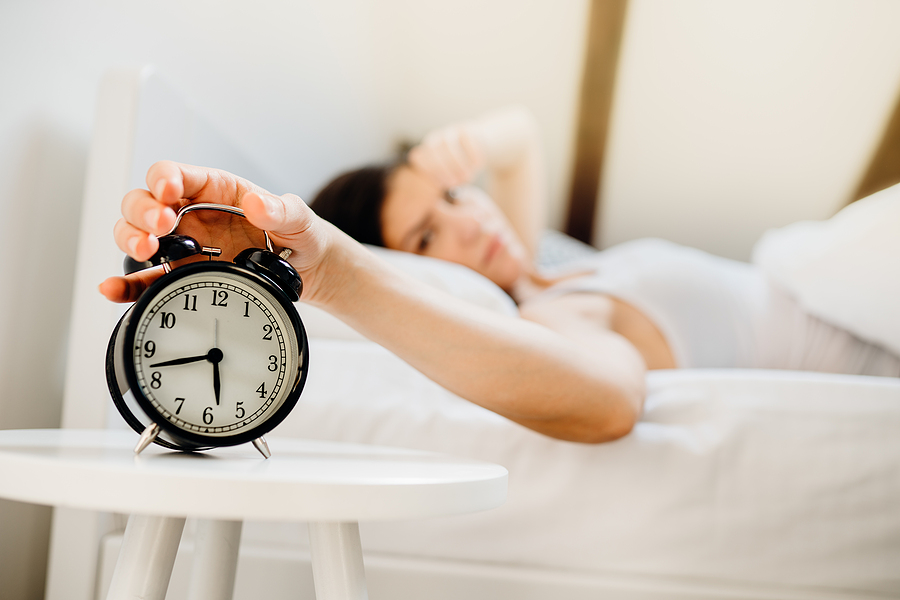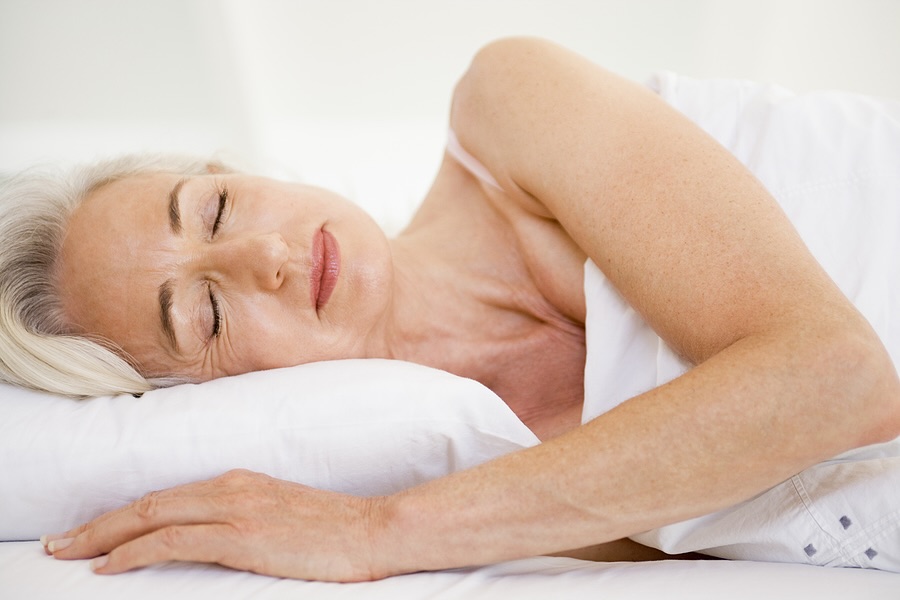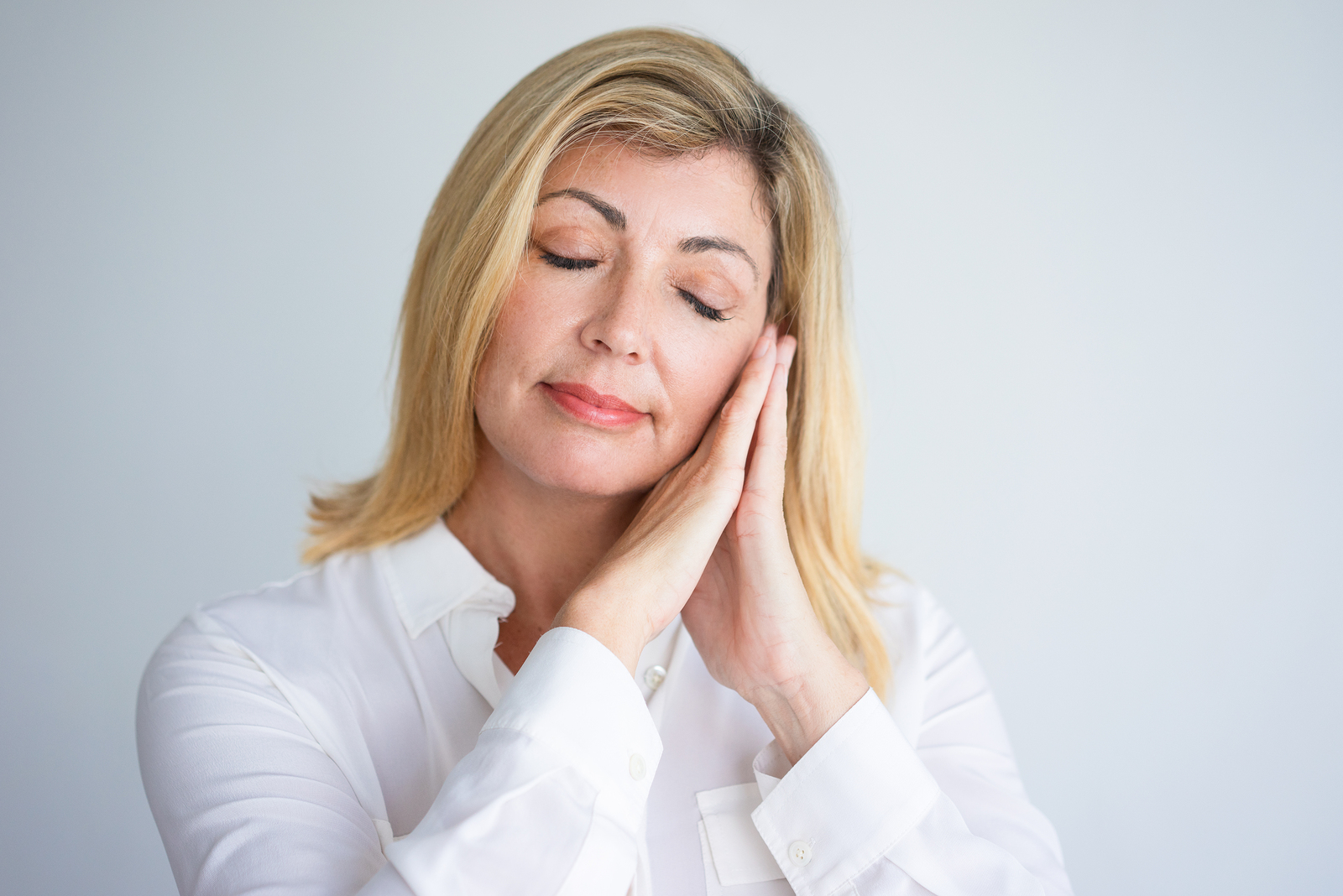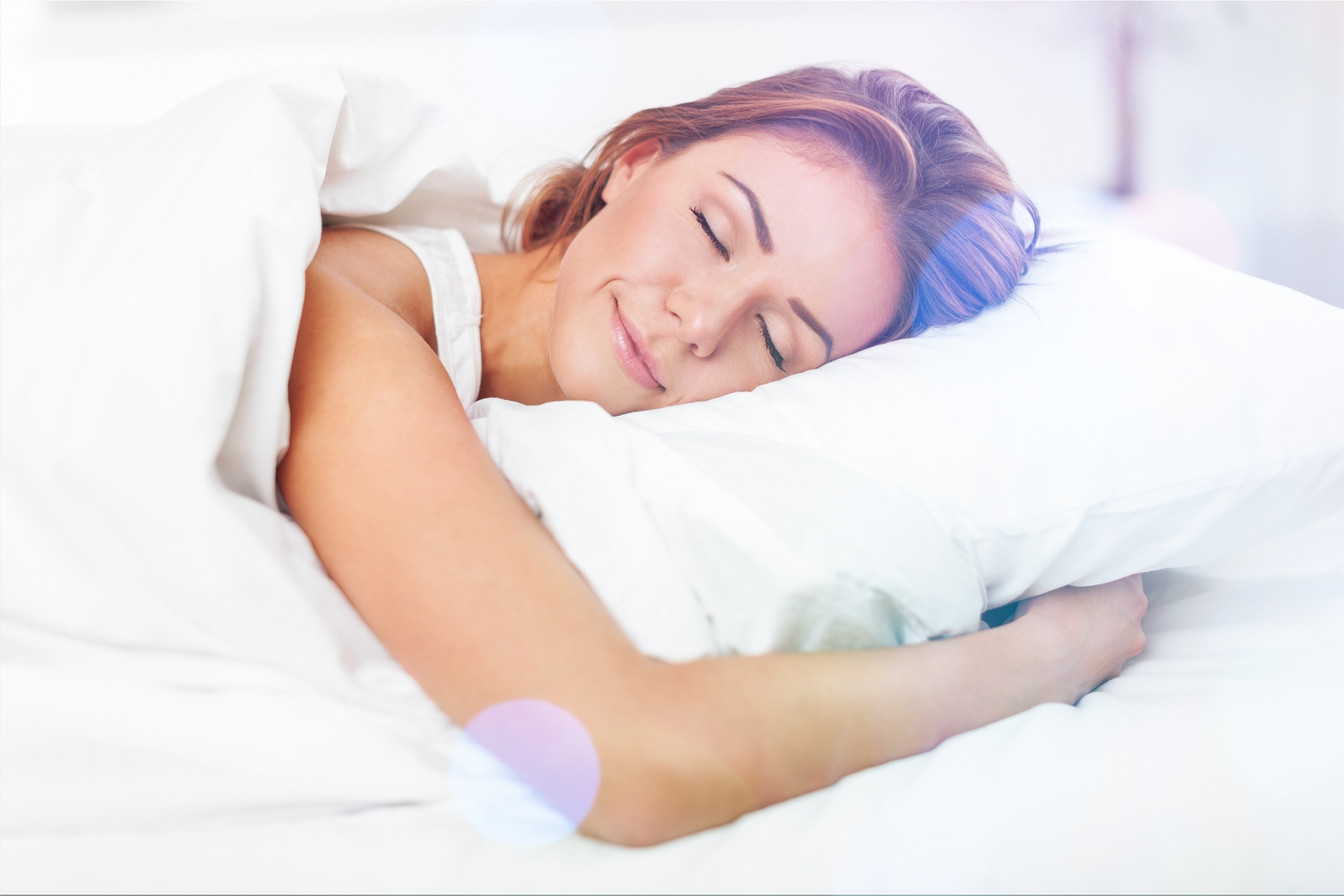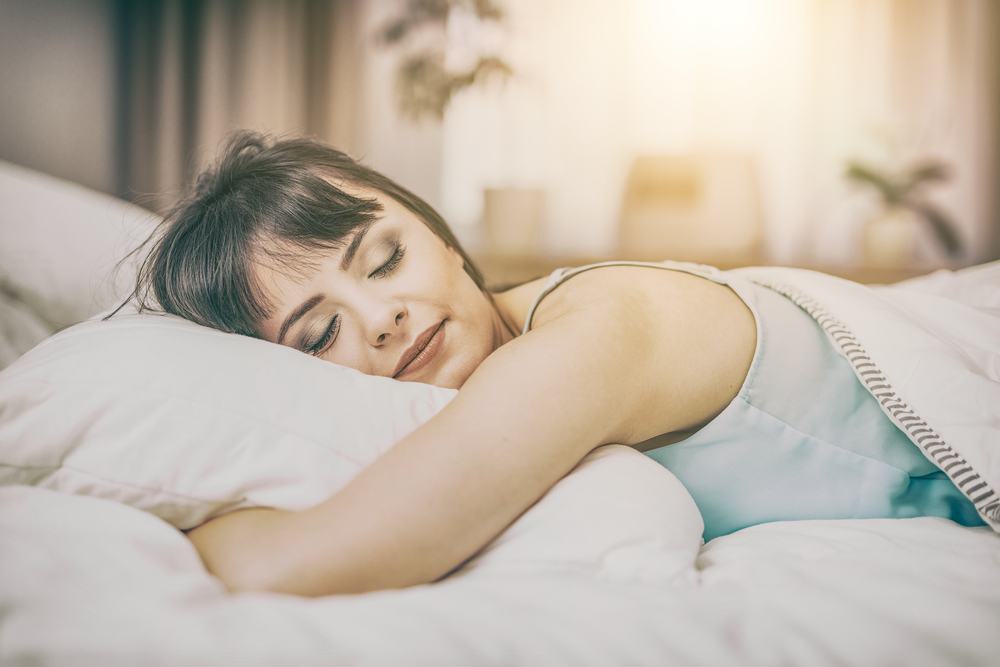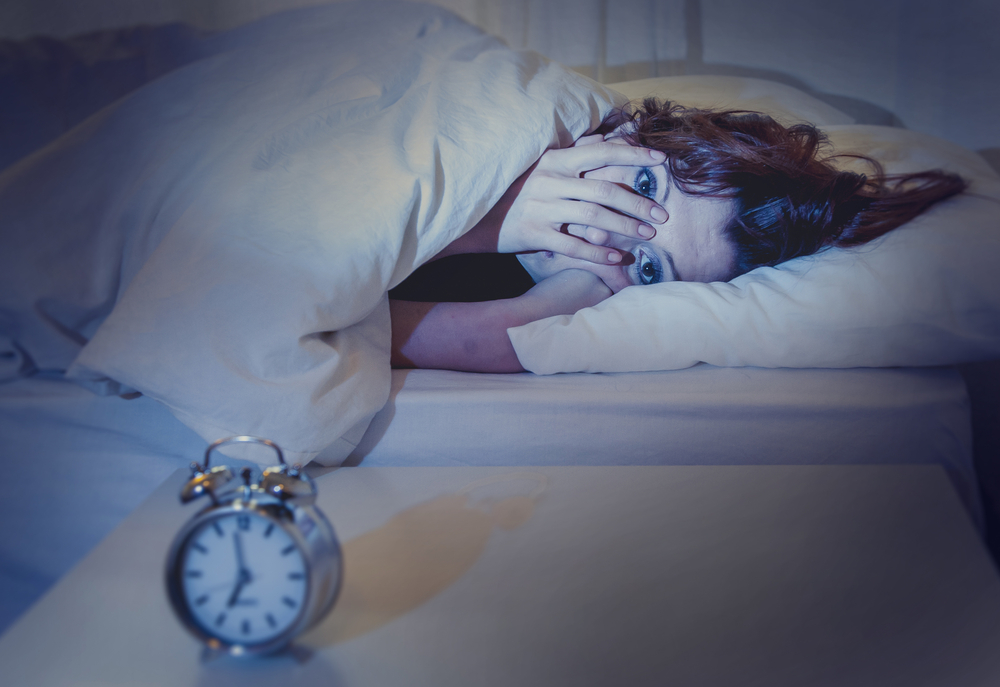“I don’t understand it,” Mia said when she came in for her appointment. “I go to bed at a reasonable hour, but when I wake up in the morning I often feel like I haven’t slept at all! I’m so tired all the time. How am I supposed to function like this?”
Of course, the answer is she can’t function properly when she’s exhausted all the time. The real question was why was she feeling so tired, even after sleeping a full eight hours?
Quality sleep is essential to staying healthy and feeling vibrant. But so many women come to me with problems like Mia’s. They sleep, but still feel exhausted. Or they go to bed at nine pm, but can’t fall asleep for hours. Or they fall asleep right away, but wake up several times throughout the night.
All of these sleep difficulties can lead to serious health consequences. In fact, research indicates that quality sleep is as important as eating a balanced, nutritious diet and getting regular exercise. For most adults, that means seven to nine hours of uninterrupted sleep to stay feeling their best.
Adverse impacts of sleep deprivation
There’s plenty of research on the importance of sleep – from how it impacts our chances of survival to the myriad health problems that result from chronic sleep deprivation. Sleep has an enormous impact on optimal functioning of both the nervous system and the immune system.
When you aren’t getting enough sleep – even for a few days – you can begin to feel the impacts. Chronic lack of sleep can lead to mood disorders, decreased cognitive functioning, higher risk of accidents, cardiac issues, diabetes, obesity, premature aging, and even an increased risk of breast cancer! That’s a lot of serious issues – and that doesn’t even cover all of them.
When you sleep, your body is doing important repair work. Vital systems spring into action during sleep, including the immune system and the pituitary gland, which releases growth hormones for muscle and tissue repair. This important work happens during slow-wave sleep and rapid eye movement (REM) sleep.
Because sleep happens in cycles, which collectively take around 90 minutes, you move in and out of these two important phases. If sleep is consistently disrupted before you have completed a sufficient number of cycles, your health can begin to suffer.
Why Can’t I Get Quality Sleep?
To correct sleep issues, you need to know what’s behind them. There are so many reasons that quality sleep is elusive, so it’s important to consider all the possibilities. When you have the right information, you have the power to make small changes to get the sleep you need.
Let’s look at some of the major culprits behind sleep disturbances, then I’ll give you some quick tips to put you on the path to a good night’s sleep.
Underlying sleep disorders
If you’re constantly exhausted it’s important to work with a qualified healthcare professional who may recommend a sleep study to rule out sleep disorders that could be impacting the quality of your sleep.
There are a range of sleep disorders to consider. Conditions that cause movement before or during sleep (one of the most common is restless leg syndrome) can make falling to sleep and staying asleep difficult.
Sleep apnea is a serious disorder that causes you to periodically stop breathing as you sleep – and you probably won’t even know it! In addition to feeling constantly tired, signs of sleep apnea include snoring, gasping for air, frequent waking, and dry mouth or headaches in the morning.
Insomnia means you can’t fall asleep easily, or you wake very early and are unable to get back to sleep. Short-term insomnia caused by stress, traumatic events, or unfamiliar surroundings typically resolves quickly. Chronic insomnia, on the other hand, lasts for a month or more and can result in anxiety, trouble concentrating, depression and irritability.
Imbalanced hormones
Your body depends on its chemical messengers – the hormones – to relay the proper information to make all your systems function smoothly. When these messages are garbled, health problems can arise.
The relationship between sleep and hormones is circular, meaning they each impact the other. If hormone levels are optimized, sleep can be too. If they’re imbalanced, sleep difficulties are likely. And if you’re getting enough sleep, you are much better able to keep hormones balanced. It’s all connected.
Stress is closely connected to hormonal balance as well. Since we are all overextended and under constant stress – especially these days – it’s no wonder it’s tough to keep hormones balanced properly.
Our adrenal glands are on overdrive, pumping out cortisol which then skews the balance of other vital hormones. This impacts mood, immune function, and sleep, among other things. High levels of cortisol can make it impossible to get to sleep even when you are tired.
You may need a supplement to get the cortisol level down at night to help you get to sleep and stay asleep. My Stress Ease can help with this.
The wrong beverage choices
Both alcoholic and caffeinated beverages can disrupt your sleep, though not in quite the same way.
Caffeine is a natural stimulant. It wakes you up, even if you don’t think you feel the impacts. Your brain gets the signal that it hasn’t been up very long when it receives a jolt of caffeine. That’s why drinking beverages with caffeine too close to bedtime can make getting to sleep impossible.
Caffeine can also make it more difficult to stay sleeping, even if you fall asleep quickly. It can prompt more nighttime bathroom trips as well.
It’s not just coffee you need to be aware of. Some teas, soft drinks, chocolate, and even medications can be loaded with caffeine
Alcohol, on the other hand, has a sedative effect. This might make you think that it’s a good sleep aid – but that’s not the case! Alcohol may indeed make you fall asleep quickly, but you won’t sink into the deep sleep phase. And it has a cumulative effect – the more you drink before bed, the more disrupted your sleep is likely to be.
Lack of established routine
For high quality sleep, and to avoid health concerns such as low mood, fatigue and increased risk of heart disease, having a regular, established routine can be important. Going to bed later on weekends than weekdays, for instance, can throw off your circadian rhythm, making quality sleep more elusive. That means that selecting a bedtime you can live with
Overusing electronics
In this “Age of Electronics,” it can be difficult to put devices away at a reasonable hour. The problem with using mobile devices or watching TV too late is twofold. First, scrolling through social media or checking work emails late in the evening can induce stress. Increased stress activates the stress response, and it’s tough to relax and go to sleep when your senses are on high alert.
Second, artificial light fools your brain into thinking it’s daytime. This causes your body to reduce production of melatonin, a natural chemical that promotes sleep. Blue light, especially, impacts the production of melatonin. That’s why it’s so important to avoid using electronics too close to bedtime and leave phones, tablets, computers and televisions out of the bedroom.
Uncomfortable bed/bedroom
Trying to sleep on an uncomfortable mattress or pillow is an exercise in futility. If you haven’t purchased a new mattress or pillow in years, it might be time. Research has shown that the type of mattress matters: medium-firm is best for quality sleep.
Mattresses can house allergens like dust mites which cause nighttime symptoms, including sneezing and coughing, that disrupt sleep.
The feel of the room can be another important aspect in promoting quality sleep. Soft, neutral colors, a comfortable temperature (cooler is better), and subdued lighting can all promote a restful atmosphere that encourages sleep.
Pets/partner disrupting sleep
I have a friend whose cat repeatedly wakes her in the night by laying down on her head. A dog that takes up more than their fair share of the bed or a partner who snores loudly, tosses and turns, or sprawls out across the bed can disrupt quality sleep as well. And once any of these things rouses you from sleep, you may find it impossible to drift off again.
Tips for Combatting Sleep Disruption
Now that we’ve looked at some common factors that can make getting necessary sleep difficult, here are some quick tips to try. Some may be easier than others to begin with. It’s not necessary to do it all at once; start small and work your way into peaceful slumber.
- Stop drinking beverages with caffeine at least five hours before bed. If you notice a sensitivity, stop by lunchtime.
- Drink alcohol in moderation (no more than one drink per day is recommended for women), if at all. Imbibe early in the day rather than just before bed.
- Lower the thermostat and install light-blocking curtains for a comfortable sleeping environment.
- Turn off electronics two hours before bed – and keep them out of the bedroom entirely.
- Pick up a new pillow. If you’ve had your mattress more than ten years, consider replacing it.
- Try different sleeping positions to find one that works best for you. One that helps a lot of my patients is sleeping on their side with a pillow between their legs.
- Find ways to relax before bed: a warm bath or shower, meditation, yoga or other gentle stretching, journaling, reading a (paper) book. Anything that calms your mind and lets you release the worries of the day can be just what you need to drift off effortlessly.
- Don’t allow pets on the bed. Keep the door closed at night if necessary.
- If sharing the bed with a partner isn’t working, consider a larger bed – or even sleeping separately. Sometimes, having separate blankets helps maintain personal space – and allows you to find the perfect temperature for you regardless of how hot/cold your partner runs.
- Don’t lie in bed obsessing about sleep. If you wake up and don’t fall back to sleep quickly, get up and do something. Lying there simply adds to the stress of not sleeping. Fold laundry, unload the dishwasher, organize old photos, or read a book — just be sure to leave the electronics off!
- Visit a healthcare professional to be assessed for a sleep disorder.
Get the Sleep You Need to Live the Life You Want!
Ignoring problems that prevent you from getting the necessary sleep your body requires is never a good idea. You don’t have to live with constant exhaustion and the health problems that come from chronic sleep deprivation. Start with one small step, then add another until you’re snoozing soundly every night, and waking up refreshed and ready to go every day!
Resources:
https://www.webmd.com/sleep-disorders/features/why-cant-i-sleep
https://www.healthline.com/health/healthy-sleep/how-to-wake-up


